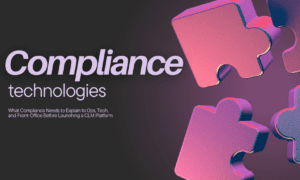The hospitality industry, notorious for its bustling kitchens and buzzing dining floors, is as challenging as it is rewarding. One of the more intricate challenges that restaurant owners and managers face is payroll compliance, particularly in Australia where legislative complexity can sometimes be confounding. Ensuring that staff are paid correctly according to the hospitality award is not just a matter of fairness but legal obligation.
Payroll compliance involves adhering to the set legal standards of employee pay, including regular wages, overtime, allowances, and leave entitlements. It requires a deep understanding of relevant awards, agreements, and national employment standards. The hospitality award is a primary reference point for businesses within this sector, stipulating the minimum conditions for employees including pay rates and work conditions.
The Bedrock of Payroll Compliance
Understanding payroll compliance is like deciphering a map through the alleys of wage laws and regulations. It’s a complex system that varies from one industry to another, and in the hospitality realm, because of the variable work hours and conditions, the challenges are particularly notable.
This complexity is why award interpretation is a fundamental skill for those managing payrolls. It is not simply about paying an employee a wage, but understanding the nuances within the award that dictate what that wage should be for any given hour worked: Are penalty rates applicable? Is the employee entitled to a meal allowance after a certain number of hours worked? How is overtime calculated? These are just the tips of the iceberg.
Interpreting the Hospitality Award
Employers in the hospitality sector must thoroughly interpret the award interpretation, a document that sets forth the minimum terms and conditions for their employees. This isn’t something you browse; it demands meticulous attention to detail. It’s where most of the compliance pitfalls lie, as errors often arise from misconceptions about the award stipulations.
A common hurdle is that many employers assume that paying above the award rate automatically aligns them with compliance. However, this is not the case when employees work unsociable hours, weekends, or public holidays where penalty rates may surge, outstripping the above-award payments. Therefore, an understanding of the need to compensate workers for these periods is crucial.
Moreover, the hospitality award is subject to periodic updates and amendments. Staying abreast of these changes ensures contemporary compliance, a non-negotiable in the eyes of the Fair Work Commission. Constant vigilance and re-evaluation of payroll processes against current legislation can protect businesses against non-compliance.
Employing Technology for Compliance
In a backdrop where human error can result in substantial penalties, embracing technology like payroll compliance software becomes imperative. Such platforms assist businesses in navigating the complexities of award interpretations, automating calculations and providing audit trails that demonstrate compliance efforts to regulatory bodies.
These intelligent systems can manage varying employee agreements, interpret the awards correctly, and update changes in real-time, ensuring that businesses keep up with legislative amendments. By relying less on manual calculations, hospitality establishments can mitigate risk and devote more time to service excellence.
Accessibility and user-friendliness are key features of effective payroll software. It will serve as the guidepost for financial administrators, ensuring that everyone can understand their compliance status at a glance and take immediate action when discrepancies are identified.
Compliance as a Culture, Not a Chore
Perhaps one of the more critical shifts needed in the industry is seeing payroll compliance not as a tedious legal responsibility but as a cornerstone of the business ethos. When compliance is weaved into the culture of a company, best practices become the norm, rather than an afterthought.
Training staff on the intricacies of the hospitality award can empower them to understand their rights and help identify any gaps in compliance. An informed team is a company’s first line of defence against non-compliance. Establishing such a culture not only fosters trust but also attracts talent that values transparency and fairness.
In this light, award interpretation tools extend beyond administrative convenience. They represent a commitment to equity in the workplace and integrity within the business. These tools affirm to employees that their welfare is a priority, building a more dedicated and motivated workforce.
In Closing
Ensuring payroll compliance within the Australian hospitality sector necessitates vigilance, understanding, and adaptability. As industry regulations evolve, so too must the strategies to meet these standards. It begins with a comprehensive appreciation of the hospitality award, extends to leveraging state-of-the-art payroll compliance solutions, and culminates in fostering a culture rich in integrity.
With the right tools and mindset, such as an effective award interpretation tool, navigating the complex seas of compliance is not just manageable, but a definitive step towards sustained success. After all, a business that takes care of its people is one that customers will want to return to time and again.
Compliance is an ongoing journey—one that if tackled with foresight, precision, and care can bolster a hospitality business to operate ethically and profitably, withstanding the test of time and regulation. Striking a balance between operational efficiency and lawful operation is not just a responsibility; it’s a testament to the quality and character of a thriving hospitality establishment.
Read More From Techbullion































